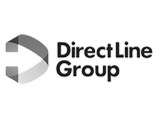Suchen Sie etwas Bestimmtes?
Führungsqualitäten &
menschliche Fähigkeiten.
Das Lernen neu denken.
Menschen dazu befähigen, zu führen, sich anzupassen und erfolgreich zu sein: Wir kombinieren L&D-Expertise, intelligente Technologie, inspirierende Inhalte und menschliche Fähigkeiten. Für Lernerlebnisse, die die Kompetenzen stärken, auf die es wirklich ankommt.
Kompetenzentwicklung für alle
Wir bieten inspirierende Lernerlebnisse zu allen wichtigen Themen der Personalentwicklung: von Leadership und Management über Projektmanagement bis hin zu wichtigen zwischenmenschlichen Kompetenzen. So entwickeln Sie genau die Fähigkeiten, die in einer dynamischen, KI-gestützten Arbeitswelt zählen.
abgedeckte Kernthemenbereiche.

Führung und Management
Seit mehr als 30 Jahren entwickeln wir die besten Manager und Führungskräfte und gehören zu den 20 weltweit führenden Anbietern für die Entwicklung von Führungskräften.
Menschenzentrierte Fähigkeiten
Förderung der persönlichen Entwicklung und Effektivität - Schärfung der entscheidenden, auf den Menschen ausgerichteten Fähigkeiten und Fertigkeiten, die erforderlich sind, um in einer KI-gestützten Welt erfolgreich zu sein.
Grundlegende unternehmerische Fähigkeiten
Verbesserung grundlegender abteilungsbezogener und funktionaler Geschäftsfähigkeiten - Schulung und Entwicklung für vielbeschäftigte Fachleute und Teams.
Fähigkeiten im Projektmanagement
Aufbau von Projektmanagement-Fähigkeiten - durch Schulungen, eLearning, Simulationen und Zertifizierungsvorbereitung. Lernen Sie von den Experten.
Wir gestalten eine Lernkultur für starke Marken
Hemsley Fraser ist ein preisgekrönter Full-Service-Anbieter für Lernen und Entwicklung. Sprechen Sie noch heute mit uns darüber, wie wir die Lern- und Leistungsentwicklung in Ihrem Unternehmen unterstützen können.
Kurse und digitales Lernen
Wir fördern Einzelpersonen und Teams mit Trainings, digitalem Lernen und Lernergebnissen, die Fähigkeiten, Kompetenzen und Performance steigern.
Maßgeschneiderte Programme
Wir realisieren individuelle, globale und skalierbare Lernprogramme. Gemeinsam mit unseren Kunden entwickeln wir Lösungen, die Inhalte, Technologie und Services intelligent verbinden: für messbare Zielerreichung und nachhaltige Leistungssteigerung.
Beratung & Dienstleistungen
Wir arbeiten mit unseren Kunden zusammen, um deren Lern- und Leistungsentwicklung zu verbessern und ihnen dabei zu helfen, die Wachstumserwartungen von Einzelpersonen, Teams und der Organisation zu erfüllen.
Wir helfen Organisationen bei ihren Herausforderungen in der Personalentwicklung
Die Welt verändert sich schnell: Halten Ihre Mitarbeiter mit? Wir unterstützen Top-Marken durch:

Verbesserte Mitarbeiterbindung, Engagement & Performance
Wir tragen dazu bei, die Mitarbeiterbindung, das Engagement und die Leistung durch menschenzentrierte Lernerfahrungen zu steigern, die wichtige Führungs- und Sozialkompetenzen vermitteln.

Fort- und Weiterbildungen für erfolgreiche Teams
Wir unterstützen unsere Kunden bei der Weiterbildung und Umschulung ihrer Teams durch ansprechende Lernerfahrungen, die wichtige menschliche und führungsbezogene Fähigkeiten aufbauen und sicherstellen, dass ihre Mitarbeiter relevant und bereit für die Zukunft der Arbeit sind.

Entwicklung von Management- und Führungskompetenzen
Seit über 30 Jahren begleiten wir weltweit Unternehmen bei der Führungskräfteentwicklung. Mit wissenschaftlicher Expertise und bewährten Methoden machen wir Führungskräfte fit für aktuelle und zukünftige Herausforderungen.

Mehr Zusammenhalt, Anpassungsfähigkeit und Belastbarkeit
Wir fördern Verbundenheit, Resilienz und Anpassungsfähigkeit durch menschenzentrierte Lernerlebnisse, die Mindset, Zusammenarbeit und Veränderungsbereitschaft stärken.
Wem wir helfen
Entdecken Sie die verschiedenen Zielgruppen, die wir unterstützen
Einzelpersonen
Kompetenzen erweitern, Potenziale aufdeckenWir unterstützen die persönliche und berufliche Entwicklung der Lernenden mit einer breiten Palette von Schulungen und digitalen Lernerfahrungen.
Gruppen und Teams
Ausbildung und Entwicklung von Gruppen und TeamsWir unterstützen die Ausbildung und Entwicklung von Teams durch unternehmensinterne Kurse, maßgeschneiderte Programme und digitale Lernerfahrungen.
Organisationen
Steigern Sie Ihre Leistung und erreichen Sie Ihre ZieleWir helfen Unternehmen dabei, das Potenzial ihrer Mitarbeitenden aufzudecken, Fähigkeiten gezielt aufzubauen, Kompetenzen weiterzuentwickeln und strategische Ziele zu erreichen.

Unser Weg und unser Engagement für Spitzenleistungen
Das Herzstück unseres Unternehmens ist eine einfache, starke Überzeugung: Wenn Menschen erfolgreich sind, sind es auch Unternehmen. Gegründet mit der Vision, einen Geist des Lernens zu schaffen und die Arbeit - und das Leben - besser zu machen, liefern wir außergewöhnliche Lernerfahrungen, die echte Wirkung zeigen.

"Hemsley Fraser leuchtet proaktiv aus, was in der L&D-Branche passiert, und dieser proaktive Ansatz hilft DLG, einen Schritt voraus zu sein und sich besser auf Veränderungen einzustellen. Es fühlt sich wirklich wie ein Team an, es ist eine ehrliche Partnerschaft, in der wir Herausforderungen und Chancen gemeinsam angehen."
Moderne, unternehmerische und schnell wachsende globale Unternehmen lieben uns!
Vielleicht haben Sie noch nie von Hemsley gehört, aber die Kunden, mit denen wir arbeiten, kennen Sie bestimmt.








Sind Sie bereit, loszulegen?
Wir reden gerne mit Ihnen. Erzählen Sie uns mehr über Ihren Kontext, Ihre Ziele und Anforderungen. Wir helfen Ihnen gerne weiter.